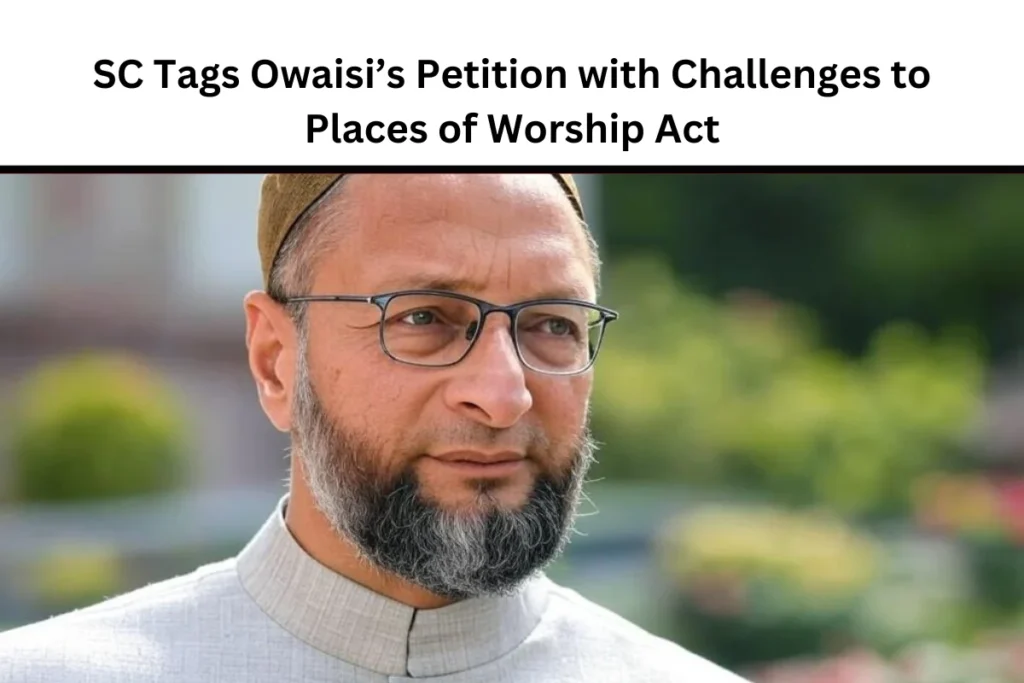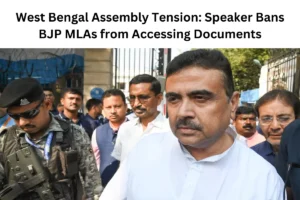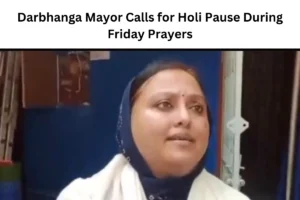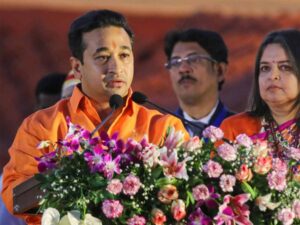
Supreme Court Tags Owaisi’s Petition on Places of Worship Act
On Thursday, the Supreme Court decided to tag All India Majlis-e-Ittehadul Muslimeen (AIMIM) leader Asaduddin Owaisi’s petition with several other ongoing cases related to the Places of Worship (Special Provisions) Act, 1991. Some of these cases challenge the law’s validity, while others advocate for its stricter enforcement.
The 1991 Act
The Places of Worship Act was enacted to preserve the religious status of all places of worship as they stood on August 15, 1947. This excludes the Ram Janmabhoomi-Babri Masjid site in Ayodhya, which was under active litigation at the time. The Supreme Court upheld the law in its 2019 Ayodhya verdict, calling it a cornerstone of India’s secular framework.
Owaisi’s Petition
Owaisi filed his petition on December 17, 2024, requesting stricter enforcement of the Act to prevent alterations of religious sites. He stressed the importance of implementing the law effectively. The court decided to consolidate his petition with others, including cases filed by BJP leader Subramanian Swamy and advocate Ashwini Kumar Upadhyay. These cases will be heard on February 17.
The Act’s Purpose
The Places of Worship Act prevents altering the religious nature of any place of worship and imposes penalties for violations. It plays a key role in safeguarding the secular ethos of the Indian Constitution. However, the law has sparked debates, with some arguing that it infringes on their fundamental rights.
Legal and Political Debates
Hindu petitioners, including BJP leaders and members of royal families, have challenged the law, claiming it unjustly prevents them from reclaiming religious sites destroyed during historical invasions. They argue that the Act unfairly targets Hindu, Buddhist, Jain, and Sikh communities, while exempting others.
Court’s Recent Directives
On December 12, a special bench led by Chief Justice of India (CJI) Sanjiv Khanna issued a directive preventing courts across the country from entertaining new suits or ordering surveys to assess the religious status of places of worship. This was in response to growing demands from Hindu groups for surveys of mosques, including the Gyanvapi mosque in Varanasi and the Shahi Idgah Masjid in Mathura. The court stayed around 18 such lawsuits, which had led to political and communal tensions. The court gave the Union government four weeks to clarify its stance on the Act.
Muslim Groups’ Stand
Muslim organizations, including the Jamiat Ulama-i-Hind, argue that striking down the 1991 Act would damage communal harmony and disrupt India’s secular fabric. They warn that reopening historical disputes could ignite fears among minorities and undermine the Constitution’s secular principles.
Owaisi’s Legal Struggle
Owaisi’s plea adds to the ongoing legal tug-of-war over balancing secular values and addressing historical grievances. The Places of Worship Act, which was passed during the Congress-led government in 1991, has largely been uncontested until the Supreme Court’s 2019 Ayodhya judgment. That ruling in favor of Hindu parties reignited calls to reclaim other religious sites, further intensifying debates over the Act’s constitutionality
for more updates follow ANN MEDIA on facebook , X , Instagram and Linkedin







